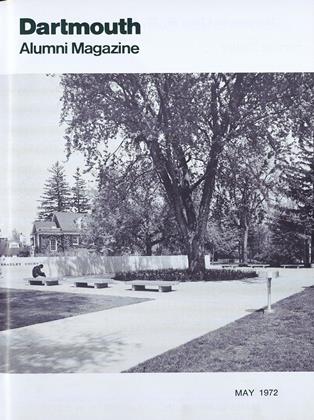ByTheodore V. Purcell '33 and Daniel P.Mulvey. University of Pennsylvania Press,1971. 146 pp. $5.95.
In late 1966, the Industrial Relations Unit of the Wharton School began a series of investigations into the racial policies of American industry. The purpose of the research, initiated shortly after the passage of the Civil Rights Act, was to identify and explain the changing patterns of Negro employment in major sectors of the economy. The present study of the electrical manufacturing industry by Fathers Purcell and Mulvey of the Cambridge Center for Social Studies is the twenty-seventh in the series. As with earlier reports, it is a thoroughly professional study by experienced investigators, obviously deeply committed to the ideal of equal employment opportunity but fully aware of the difficulties and dilemmas that attend efforts to implement that ideal in today's society.
The scope of the study, set by the series' purpose, is quite limited. The authors, for example, do not address directly the question of the "social responsibility" of private institutions such as business firms and unions, nor do they explore the complex issues of quota-setting and reverse discrimination that vigorous enforcement of "affirmative action" programs inevitably raises. Instead, they trace how far the electrical manufacturing industry has moved in integrating its work forces and identify the factors responsible for change, providing thereby the information necessary both for assessing the efficacy of current policies and for forecasting future developments.
The focus on description rather than prescription will undoubtedly disappoint some readers. Progress reports, after all, make for less lively reading than crusading tracts; and responsible social analysis is a tough-minded discipline which invariably complicates thinking and renders judgments less absolute. The critical need, nevertheless, is for precisely this type of dispassionate analysis that seeks to inform and assist rather than to arouse and incite—not because the time has arrived for consolidating gains or for practicing "benign neglect," but because effective social action on the problem can only proceed rationally from a knowledge of its true dimensions and from an understanding of the results of existing programs. The Purcell-Mulvey report, like the larger continuing study of which it is an integral part, aims to supply this knowledge. By doing so effectively, it informs the policy process and places the policy analyst and advocate alike, as well as the concerned citizen, in the authors' debt.
Mr. Mac Donald is a Professor of Economicswho teaches a course and a seminar inIndustrial Relations at the Tuck School.
 View Full Issue
View Full Issue
More From This Issue
-
 Feature
FeatureA Valedictorian Changes His Mind
May 1972 By ALBERT WILLIAM LEVI '32 -
 Feature
FeatureMorton, Kilmarx Elected Charter Trustees
May 1972 -
 Feature
FeatureCharlie Zimmerman: An Appreciation
May 1972 By GEORGE H. COLTON -
 Feature
FeatureThe Nautical Nyes
May 1972 By MARY ROSS -
 Feature
FeatureAmerican Musicologist
May 1972 -
 Feature
FeatureTrade Unionist
May 1972
ROBERT M. MACDONALD
-
 Class Notes
Class Notes1921
October 1945 By CHARLES A. STICKNEY JR., ROBERT M. MACDONALD -
 Class Notes
Class Notes1921
October 1948 By DONALD G. MIX, ROBERT M. MACDONALD, ROBERT P. BURROUGHS -
 Class Notes
Class Notes1921
March 1950 By DONALD G. MIX, ROBERT M. MACDONALD, ROGER C. WILDE -
 Class Notes
Class Notes1921
June 1951 By DONALD G. MIX, ROBERT M. MACDONALD, ROGER C. WILDE -
 Class Notes
Class Notes1921
January 1954 By REGINALD B. MINER, ROBERT M. MACDONALD, DONALD G. MIX -
 Class Notes
Class Notes1921
May 1952 By REGINALD B. MINER, ROBERT M. MACDONALD, ROGER C. WILDE
Books
-
 Books
BooksFaculty Publications
June 1934 -
 Books
BooksEINSTEIN: A PICTORIAL BIOGRAPHY.
June 1956 By CLIFFORD L. JORDAN '45 -
 Books
BooksHoarding or Sharing
May 1975 By DENIS G. SULLIVAN -
 Books
BooksTHE STRUCTURE OF MATTER.
DECEMBER 1965 By FRANCIS W. SEARS -
 Books
BooksCRUSADE
October 1952 By James F. Cusick -
 Books
BooksTHE PREVALENCE OF NONSENSE.
NOVEMBER 1967 By JOHN HURD '21

